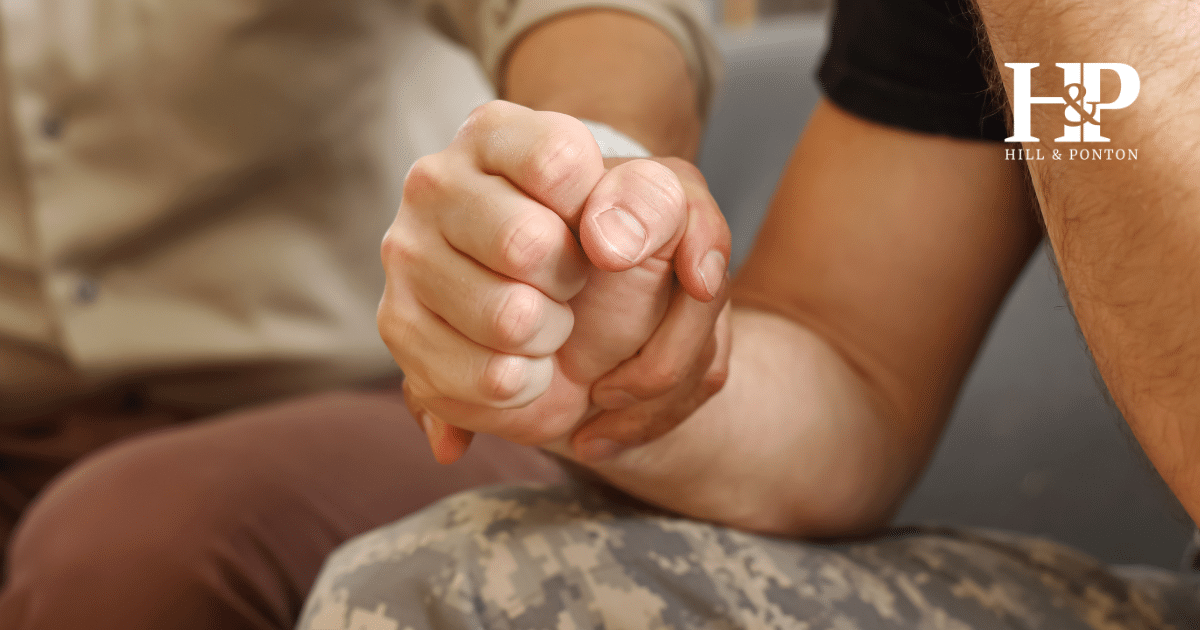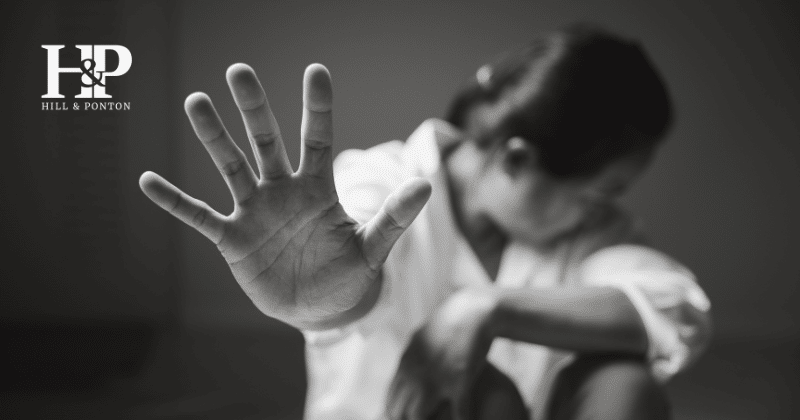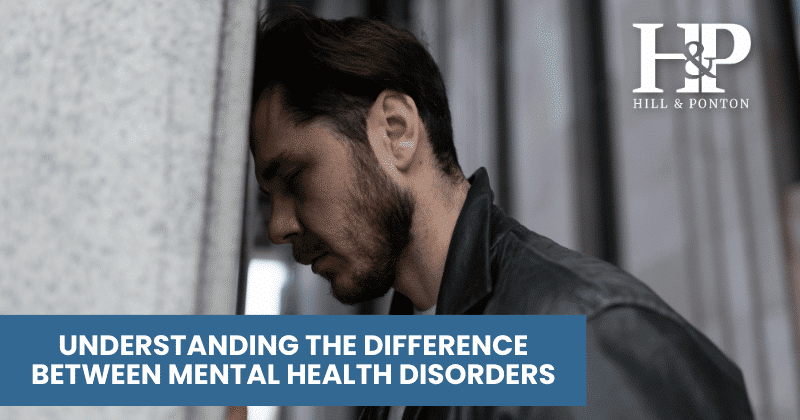Post-traumatic stress disorder (PTSD) is a mental health condition that can develop after witnessing or experiencing a traumatic event, such as combat, natural disasters, or sexual assault.
For military veterans, PTSD often results from active duty service, including combat exposure, military sexual trauma, or witnessing traumatic events. Symptoms can develop days, weeks, or even years later, significantly impacting daily life.
In this guide, we’ll discuss PTSD symptoms, risk factors, diagnosis, and treatment options for veterans.
Who Is At Risk of Developing PTSD?
PTSD can affect anyone, regardless of age or gender, but certain risk factors increase the likelihood of developing the condition.
Key Risk Factors for Veterans
- Length of exposure to traumatic events.
- Severity of the injury during a traumatic incident.
- Combat experience: More time in combat zones often correlates with higher PTSD rates.
- Personal factors: Previous trauma, age, gender, and temperament can influence PTSD risk.
- Family history: Inherited mental health risks like anxiety or depression.
- Brain response to stress: The way the brain regulates stress hormones can also play a role.
PTSD Statistics for Veterans
30% of Vietnam veterans have experienced PTSD during their lifetime.
11-20% of veterans from Operation Iraqi Freedom and Operation Enduring Freedom experience PTSD each year.
12% of Gulf War veterans develop PTSD annually.
Want a more in-depth look at PTSD and how to get rated for it? Check out our guide.
What Are the Most Common PTSD Symptoms?
PTSD symptoms generally fall into four main categories. These symptoms can appear immediately after a traumatic event or take years to develop.
1. Intrusive Thoughts
- Flashbacks, nightmares, and distressing memories.
- Physical and emotional reactions, including panic attacks, uncontrollable shaking, and rapid heart rate.
2. Avoidance
- Avoiding people, places, and situations that trigger memories of the trauma.
- Withdrawing from social interactions, including friends and family.
- Loss of interest in activities once enjoyed.
3. Negative Thoughts and Emotions
- Exaggerated negative beliefs about oneself or the world.
- Feelings of guilt, shame, or survivor’s guilt.
- Inability to feel positive emotions or experience happiness.
4. Hyperarousal and Irritability
- Angry outbursts, irritability, and reckless behavior.
- Difficulty sleeping or concentrating.
- Feeling on edge, hypervigilant, or easily startled.
Impacts on Daily Life
PTSD often leads to significant challenges in social, personal, and professional life. Common issues include:
- Substance abuse and co-occurring mental health conditions like depression.
- Marital or family problems.
- Trouble maintaining employment.
How Is PTSD Diagnosed?
To diagnose PTSD, health care professionals typically perform both a physical exam and a psychological evaluation.
Diagnostic Criteria
Doctors use the Diagnostic and Statistical Manual of Mental Disorders (DSM-5) to identify PTSD. This includes reviewing symptoms, discussing the traumatic event, and assessing how the condition impacts your life.
Treatment Options for PTSD
PTSD is treatable, and veterans have access to several evidence-based therapies and medications.
- Cognitive Behavioral Therapy (CBT): Helps veterans recognize and change negative thought patterns. Often combined with exposure therapy.
- Exposure Therapy: Involves revisiting traumatic memories in a controlled environment. Tools are provided to manage the stress response.
- Eye Movement Desensitization and Reprocessing (EMDR): Combines exposure therapy with guided eye movements. Helps process traumatic memories and reduce emotional triggers.
- Medications: Antidepressants and anti-anxiety medications can help manage symptoms. A psychiatrist can determine the most effective medication with minimal side effects.
Want to learn more about different kinds of PTSD treatments, including newer and more unique ones? Read our post on treatments for PTSD in veterans here.
Support Resources
The National Center for PTSD raises awareness and offers resources, especially during PTSD Awareness Month in June. Every VA medical center in the U.S. provides PTSD specialists and nearly 200 specialized treatment programs for veterans.
Has Your VA Disability Claim for PTSD Been Denied?
If you can prove your PTSD is service-connected and you did not receive a dishonorable discharge, you may qualify for VA compensation and disability benefits. However, many veterans face denials during the claims process.
If your claim has been denied, you still have options. Hill & Ponton’s experienced legal team can assist you with appeals and help you fight for the benefits you deserve. Learn more and get a free case evaluation here.




